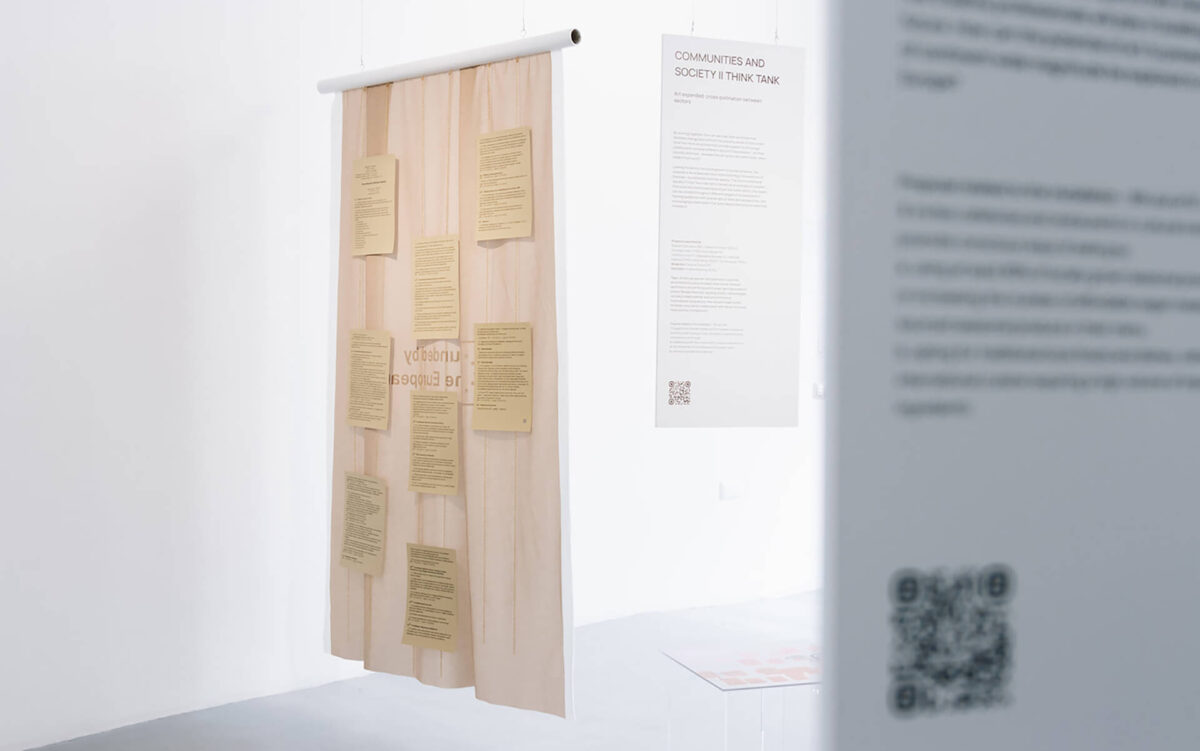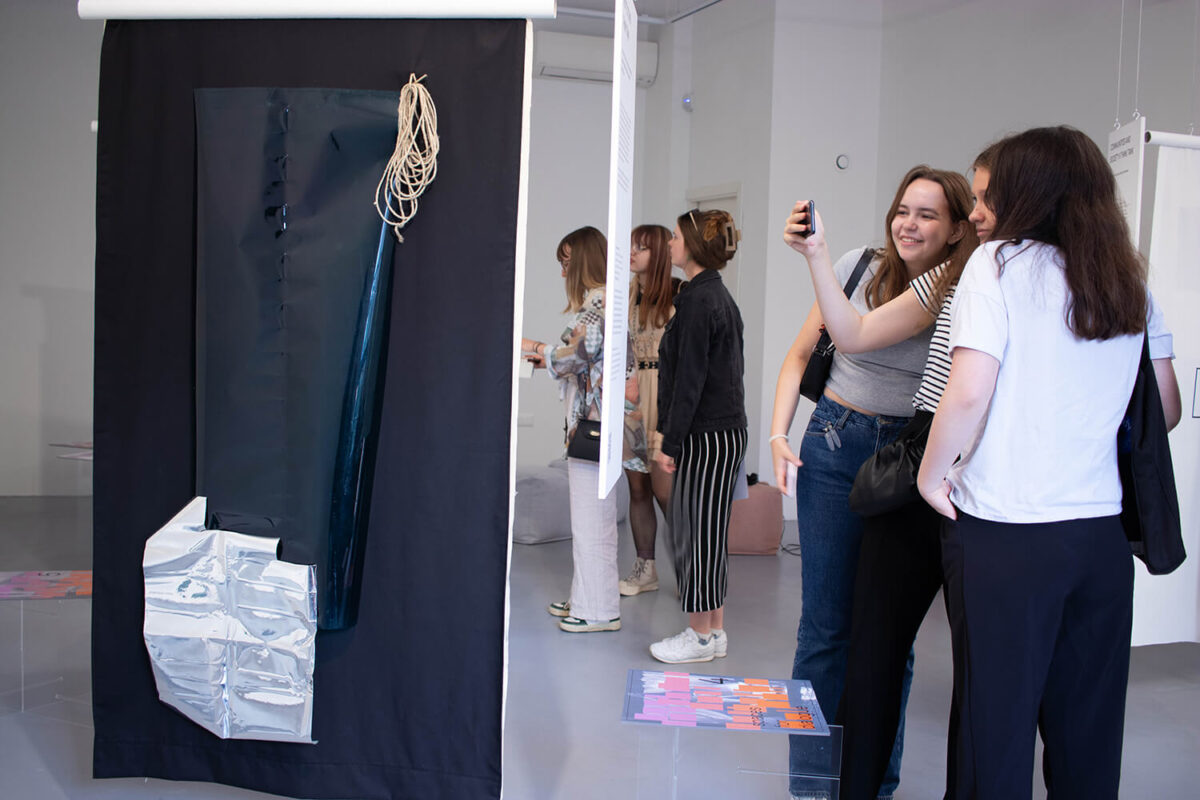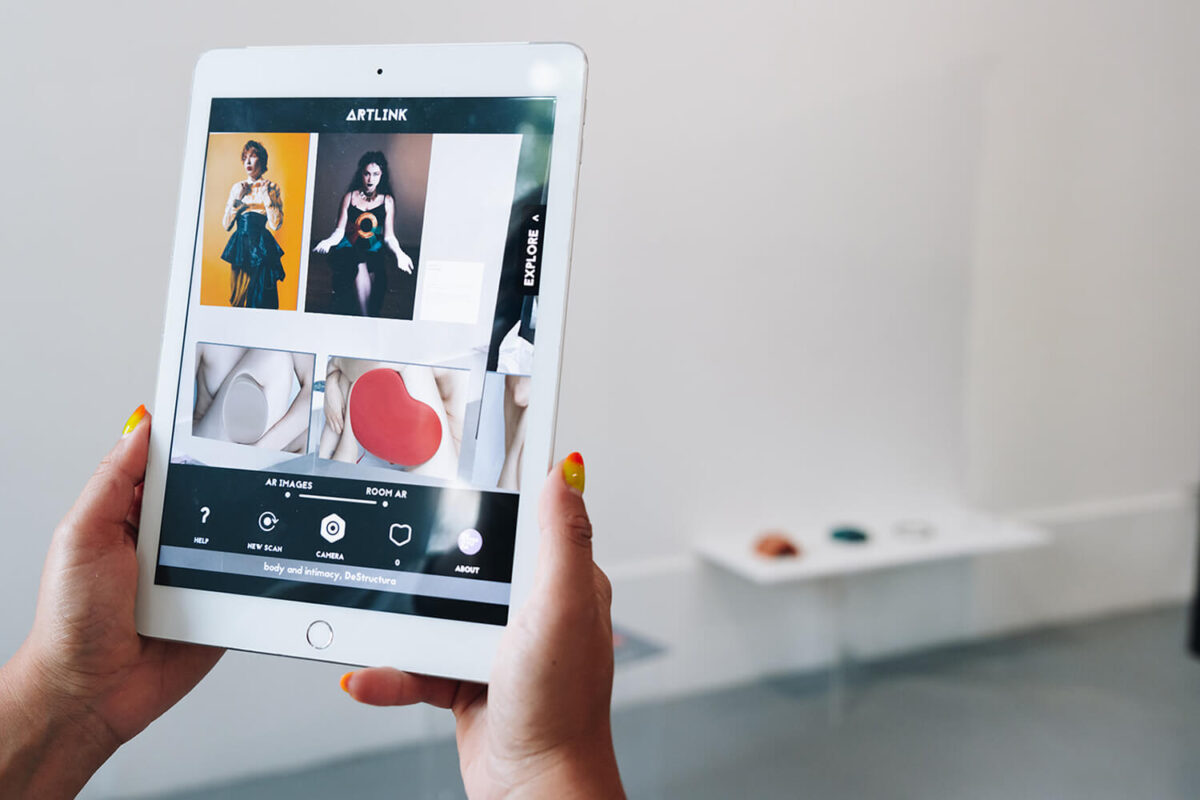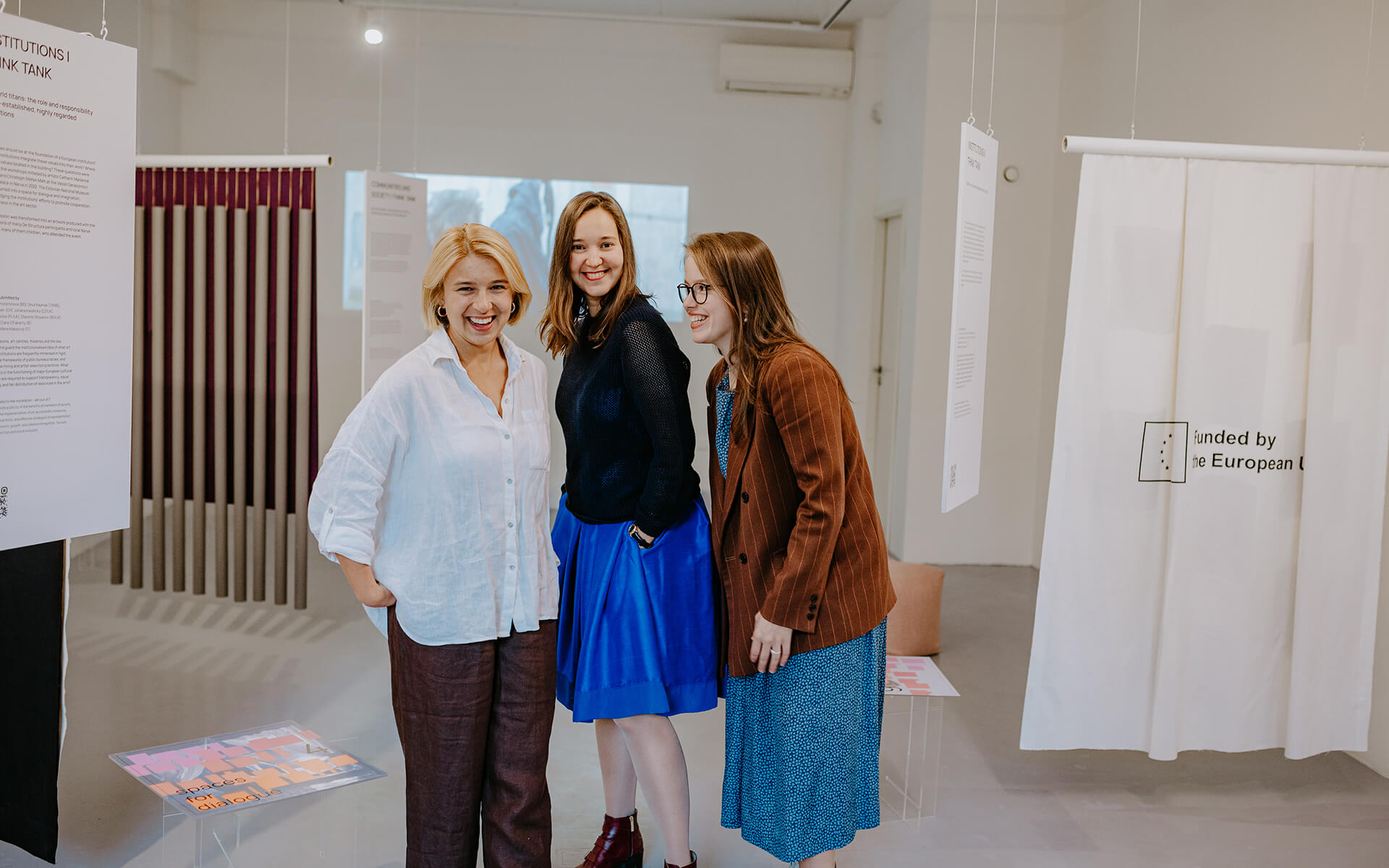Unveiling De Structura: bringing youth and the art world together
During the month of August, Reset! had an enlightening conversation with three art sector professionals about an interesting exhibition that took place in the summer of 2023 in Tartu, Estonia. Triinu Halgma, a semiotics and art history student, intern at Kogo Galerii and visitor to the exhibition, as well as Anastasia Lemberg-Lvova and Kateryna Lypovka, core team members of De Structura and two of the three co-curators of the exhibition, let us in on Unveiling Structures and the path to its creation.
This summer, between July 20th and August 6th, you could experience a new and modern visual art exhibition in Tartu, Estonia. Thanks to Augmented Reality (AR), Kogo Galerii, a small independent art gallery, was able to host an extensive exhibition of more than 50 artworks –Unveiling Structures.

Curated by Yana Ustymenko, accompanied by De Structura team members Anastasia Lemberg-Lvova and Kateryna Lypovka, the exhibition displayed 9 different AR markers –or virtual rooms–, each of them containing between 4 and 7 art works. Exploring a variety of contemporary themes from memory & time, to the (in)tangible, body & intimacy, or to connecting with nature, Unveiling Structures brought a new way of experiencing visual arts to the table. Developed with Romanian partner Art Link, the AR gave the opportunity to the visitor to actually and completely delve into art, as Triinu Halgma explains “the exhibition forced the visitor to live in the moment, since you haven’t the possibility to take photos with AR, you have to focus on art.” Along with these numerous virtual rooms, the exhibition also featured in-real-life elements such as a 15-minutes video, shorts extracts of De Podcastura podcasts, as well as 6 installations illustrating the suggestions to improve the art world by De Structura participants. At the core of the exhibition was the will to show the artistic and creative process as a whole, from the legal framework an artist has to get to know and go through, to the artist selection practices, to the unequal distribution of institutional funding in the arts. To do so, the curators created a letter for the visitors, which allowed them to grasp this intention fully. It is about going behind the scene, as Anastasia Lemberg-Lvova puts it “we talk about things that people don’t even consider or want to speak about; because the art world is such a beautiful, eccentric, mysterious world that usually is very closed up and inaccessible,” while they are “trying to make it as accessible as possible.” By exhibiting productions and tackling topics that are not seen in regular exhibitions, organisers are exposing their struggles, fight, and values.

Unveiling Structures is the first long-term exhibition of independent non-profit Estonia-registered organisation De Structura. Created in 2021 on the combination of two of its founder experiences and skills, one being political and institutional through the participation in the European Youth Parliament for a decade, the other lying in being a visual artist, De Structura was born “both about and against the current structures of the art world.” In its 2 years of existence, De Structura has actively worked to gather and build a large network of young artists in visual and performing arts in order to go beyond the highly competitive and daunting atmosphere reigning in the art world today. The organisation empowers and attracts a young generation who might be daunted and rejects the pursuit of a career in the arts –which would be a shame as explain Anastasia Lemberg-Lvova and Kateryna Lypovka. Spread out throughout Europe and beyond, the organisation’s team is composed of a 3-people core team, supported by an extended project-based team of 15 persons, and a network of more than 100 artists. These persons were gathered during one of De Structura’s momentum: their forum event organised in Tallinn and Narva in May 2022. This major event is thought of and presented by both Kateryna Lypovka and Anastasia Lemberg-Lvova as the founding moment of the organisation. It had as a main scope to identify the current problems in the cultural and art sectors. Divided in 6 groups working on 4 different topics subdivided in 6 arguments –Professionalisation, Community & Society, Institutions, The New Deal– the participants had the opportunity to have real discussions concerning their challenges and needs as artists, and to come up with solutions to improve these situations. The main outcome of this unprecedented forum is a report, compiling all the ideas that emerged during the discussions. Kateryna Lypovka points out that this report is the preface of Unveiling Structures, as it is both what is displayed on the 6 installations of the exhibition as well as “the wrap up of this year’s work.”
A work dedicated to unveil the structures that hang over young artists when entering the art world, or when trying to establish themselves in it and actually make a living from it. These structures are mainly made up of poor funding conditions, as being an artist is often characterised by “years of unpaid labour, usually sustained by another job,” as highlighted by Anastasia, and by a significant issue with “mental health and precarity in the art sector.” Using a very specific example, Anastasia Lemberg-Lvova explains that when applying for some European grants, such as mobility grants to attend an art exhibition, workshop, or forum, or even to exhibit one’s own work, the main condition is to accept to receive 70% of the sum up front, and 30% of it after the aforementioned mobility and after sending various documents. This division of the grant can cause substantial problems for young artists who may not have the required resources to pay in advance. As for Anastasia Lemberg-Lvova, “in the case of small mobility grants, it makes absolutely no sense and creates an enormous work load for €300-500. It would be better to make it a stipend.” Both Anastasia Lemberg-Lvova and Kateryna Lypovka agree on being a form of “art lobby for young art professionals.”

This commitment to youth and a better art world is made possible by a substantial advocacy work. This is at the core of De Structura’s activities. Trying to bring culture into political and institutional discussions and to show its importance is the main aim of these advocacy efforts. Kateryna Lypovka calls attention to the fact that “unfortunately for a lot of people, there is a major lack of understanding, as well as a lack of interest in culture and arts”, which reinforces “the importance to speak up.” This mission is mainly carried out by visiting European forums, conferences, or events to remind stakeholders, from politicians and public officials, to private foundations and companies, of the importance of culture and the need to support its independence. Last October, Anastasia was invited to take part in a panel discussion at the Culture Moves Europe launch event. This was an opportunity to delve into young artists’ needs and what the new generation is proposing for the future of the arts and culture sector. De Structura is also part of an Erasmus+ project called Fresh Fabrik together with two other organisations –from Malta and Hungary–, for which they are proposing empowerment workshops on fundraising, legal artistic practices, but also on advocacy in the arts, the ways, techniques, and importance of it. This engagement towards making culture a first topic is fully in line with De Structura’s membership within the Reset! network. Supporting freedom of creation, flexibility, and independence of galleries, collectives, initiatives, non-profit cultural organisations, and acting in the interest of the independent artistic, cultural and media community in Europe and beyond is what Reset! and De Structura are working on hand in hand.
Unveiling what is displayed in this exhibition, who is behind this enormous work, why they are collectively doing these actions, and how they are trying to change the discouraging foundations of the art world, is an active step in describing the important missions that are being carried out by independent players like De Structura are carrying out. Their exhibition Unveiling Structures is the visual and artistic way to understand this commitment, and it came after Tartu, in Aarhus, Denmark at the beginning of September during the Juxtapose Art Fair. A well-deserved exposition, as their work should be discovered and considered by a wider international audience.


This piece is powered by Reset!, the network promoting independent cultural and media players in Europe.




